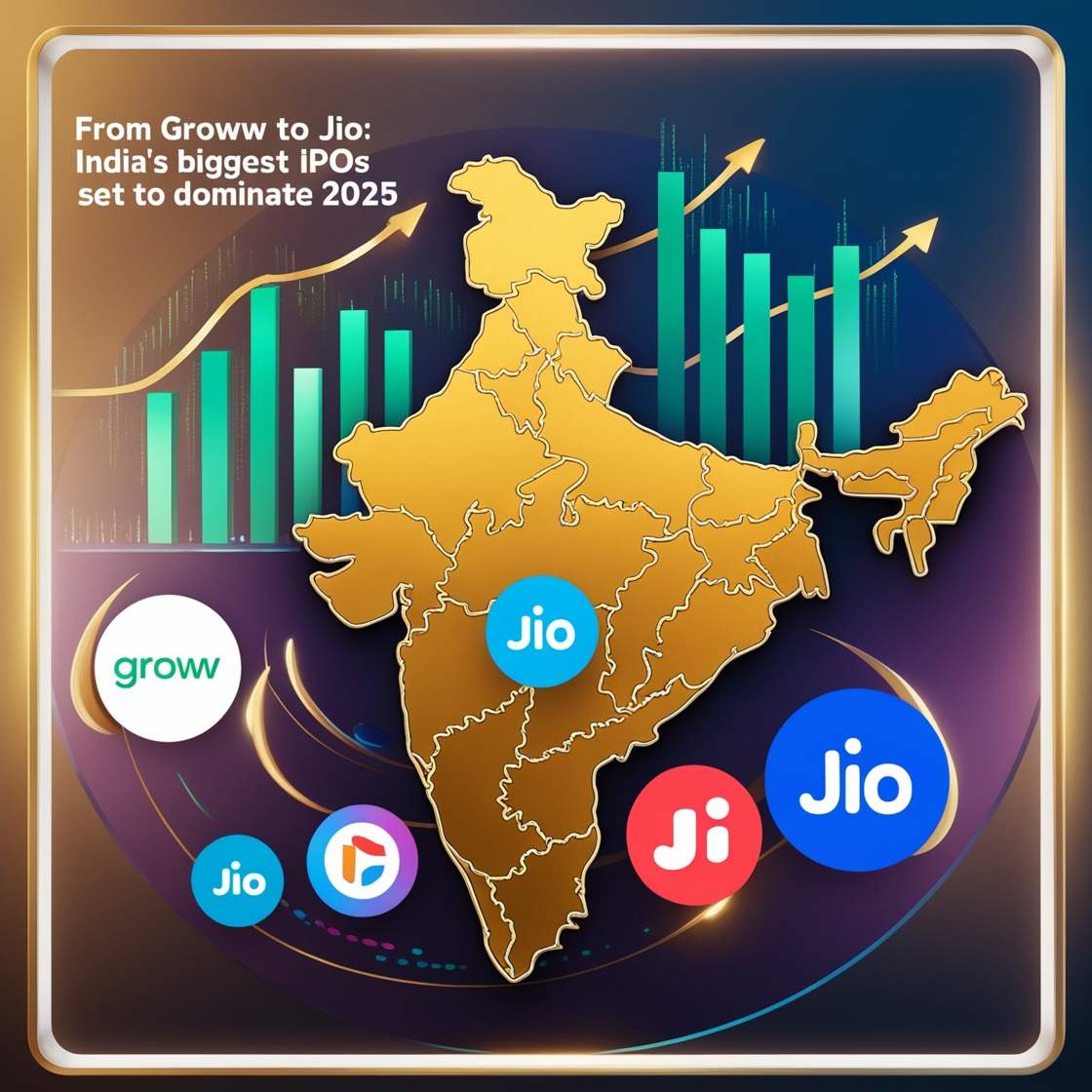India is preparing for a deluge of mega listings this year that may send the value of initial public offerings soaring past 2024’s record run, even as the nation’s economy wobbles and currency faces growing strains.
At least seven companies are in the pipeline to raise at least $1bn each this year, according to investment bankers working on the listings. They include domestic names like online brokerage Groww, fintech firm Pine Labs, which counts PayPal as an investor, and eyewear brand Lenskart, which is backed by SoftBank. LG of South Korea is also expected to list its Indian arm.
This year’s haul comes in contrast with just three $1bn offerings last year, including Hyundai’s listing of its local business, following the debut of takeaway and grocery delivery company Swiggy. India had topped Asian IPO charts last year, second globally behind only the US.
Total equity fundraising through public flotations may exceed $23bn in 2025, according to Indian brokerage and asset management group Motilal Oswal, compared with $19.6bn raised in 336 IPOs in 2022.
So far, 34 companies have been given a go-ahead to raise $4.8 billion in the current year, and another 55 companies are awaiting regulatory clearance to raise up to $11.4 billion, it added, quoting the data as available with the capital markets regulator.
“There is a strong pipeline,” said Sonia Dasgupta, chief executive of the investment banking division at JM Financial, which is based in Mumbai.
The joker in the pack—and potentially the biggest IPO—would be Reliance Jio, the telecommunications company owned by Mukesh Ambani, Asia’s richest man. Although Ambani and his company, the conglomerate Reliance Industries, have no indication yet of when they might bring Jio public, many investment bankers say that it could happen in the second half of the year. Reliance did not reply to a request for comment.
Strong debuts on the whole have encouraged corporations and investors. Of the 162 companies that launched their IPOs in 2024, over 82 percent of the companies’ price rose after listing, Bank of Baroda analysts noted in a recent study.
Companies have been keen to capitalize on India’s elevated equity valuations, spurred by local fund flows as millions of Indian households invest more of their savings in domestic markets.
“India is one of the most expensive markets,” said Kunal Vora, head of equity research at BNP Paribas, noting that price-to-earnings multiples for shares were about 20 in India, relative to averages of up to 14 in most other markets.
Local capital had “become the bedrock” for the Indian markets, he added, with domestic institutional inflows exceeding foreign funds for a fourth straight year in 2024. But the number of Indians with accounts that enable them to invest in mutual funds has more than quadrupled, rising from about 40 million in 2020 to more than 180 million last year.
The rise in domestic investor interest has come as foreign investors have pulled more than $30bn from the country since October, deterred by the relative cost of the country’s stocks.
India’s Nifty 100 index of leading stocks has slumped 12 percent from a September peak as companies released a slew of weak earnings against the backdrop of a widespread economic slowdown. While India’s growth remains the fastest of any large economy, GDP during the three months ending September was only 5.4 percent bigger than a year earlier, the lowest rate in nearly two years.
As President Donald Trump took office in the US, the rupee has also come under renewed pressure against a firming dollar.
“It’s an emotional cycle now,” said Nitin Bhasin, the head of institutional equities at Ambit Capital in Mumbai, who said that a lot of Indian business founders, known locally as “promoters,” might wait to see if valuations rise again. “I’m already seeing in my one-on-ones that a lot of promoters, if not all, are tempering the urgency with which they wanted to come out with the IPO—they are willing to push one or two months.”
Some big-name IPOs have also been lackluster, with Hyundai Motor India down 8.7 percent since its October debut.
And there have been concerns about the quality of a wave of smaller companies that have listed in the past 12 months and about whether markets are being used by major foreign companies to move money out of the country rather than reinvest in India.
Many Indian owners of the businesses have also been “taking that money home,” according to another banker in Mumbai. “It seems management or promoters are using Indian stock markets as cash-withdrawing machines.”















